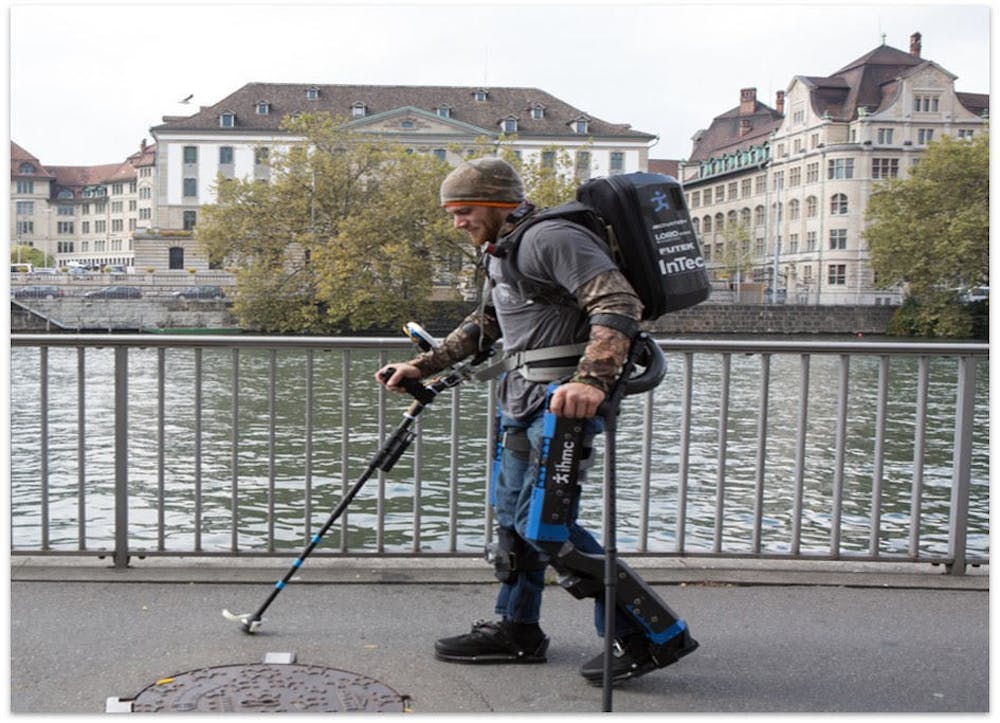When Matt Bellman was a child, his mother used to ask him to build her a new body.
His mother was diagnosed with breast and thyroid cancer, both of which took a toll on her, Bellman said.
Years later, that request became the basis for the UF alum’s company, Myolyn, a medical technology company based out of Gainesville that works to develop devices to help people with lower-body paralysis.
The company, in partnership with the Institute for Human and Machine Cognition, a non-profit research organization that develops technology for human advancement, was deemed a finalist in the Toyota Mobility Unlimited Challenge. The competition serves to increase research and development of technology designed to help people with lower-body paralysis, said Alan Hamlet, co-founder of the company.
Myolyn was chosen as one of 10 finalists out of 96 applications from 25 different countries, Hamlet said.
Myolyn received a grant for $50,000 as one of 10 finalists in The Discovery Awards. The company received a grant for $500,000 on Jan. 8 as one of five finalists to further develop the device for the finals in Tokyo in 2020.
The winner will receive a $1 million grand prize, Hamlet said.
Bellman and Hamlet, both UF alumni, created Quix, a robotic exoskeleton that allows for quick-moving upright mobility for those with lower-body paralysis. Hamlet and Bellman, who graduated from UF in 2010 and 2011 respectively, both hold bachelors of science, master’s degrees and Ph.D.s, all in mechanical engineering with a specialization in robotics from UF.
Myolyn is currently working with electrical stimulation, Hamlet said. The exoskeleton prototype can increase blood flow and bone density, which can reduce the incidence of bone fractures in people with paralysis.
“We’re working on incorporating some of the advanced perception and navigation technology from autonomous robotics to make this device more user-friendly and more affordable,” Hamlet said.
“This could be something that someone with paralysis could use on a daily basis to get around instead of their wheelchair,” Hamlet said.
The pair founded Myolyn in June 2013.
Hamlet and Bellman hope to use this opportunity to grow their small company and double their team of seven members by the end of the year.
“If we win the $1 million grand prize, that would allow us to focus on bringing this technology to market and supplying these devices to people who really need them,” Hamlet said.
Mark Daniel, a complete paraplegic, uses the Quix prototype on the cobblestone streets of Zurich, Switzerland. Daniel is the official tester for the exoskeletons developed by Myolyn and the Institute for Human and Machine Cognition. Courtesy to The Alligator.





![Photo of the missing Leachianus “Leachie” gecko. [Photo courtesy of Mike Southwick]](https://snworksceo.imgix.net/ufa/907bd92a-0b29-40eb-a5fb-d7db7cf98b2f.sized-1000x1000.jpg?w=1500&ar=16%3A9&fit=crop&crop=faces&facepad=3&auto=format)
